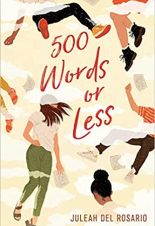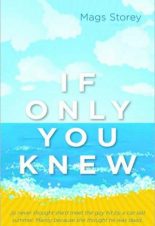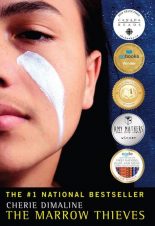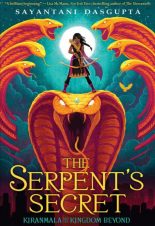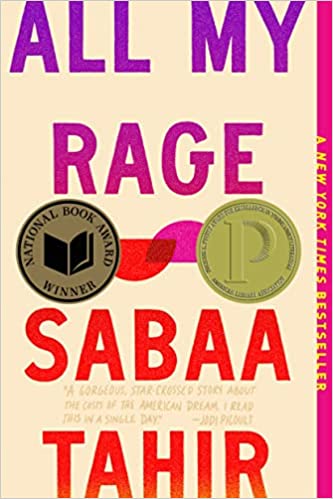
Buy This Book
“If we are lost, God is like water, finding the unknowable path when we cannot,” Misbah. - All My Rage
All My Rage
by Sabaa Tahir
AR Test, Teaches About Culture
14+
Score
4.2
400
In the humble and quiet town of Juniper, California, resides two Pakistani-American teens who are not just best friends, but family as well: Salahudin Malik, an aspiring writer who struggles to take care of the family motel as his mother’s health declines and his father slowly succumbs to alcoholism, and Noor Riaz, an intelligent and logical woman who dreams of becoming a doctor, yet has to hide her ambitions from her controlling uncle, who adopted her when her parents were killed in an earthquake in Pakistan.
However, their friendship is compromised when the Fight breaks out between them, and their individual problems gradually worsen. Sal’s desperate attempts to save the motel and Noor’s determination to go to college lead to unforeseen consequences. Sal and Noor’s friendship rises and falls with each harrowing decision, all the while fending off the monsters that live in their past and the ones that live to this day.
Narrated in dual-POV, both Sal and Noor are engaging and complex—even though they have plenty of flaws. The teens are perfectly portrayed as realistic teenagers who are withstanding difficult lives. While trying to ensure his family motel remains competent, as per his dying mother’s wishes, Sal’s desperation and lack of proper judgment lands him in deep waters; this further compromises his friendship with Noor, who is sacrificing her own happiness to appease her selfish uncle by working at his liquor store. At such a young age, both teens must not only think for themselves, but also for their guardian/family as their living conditions and financial situations are not ideal.
However, the two protagonists shed an inspiring light with their determination—and especially their deep love and care for each other. When Sal finds out a disturbing fact about Noor’s uncle, he takes her out for the evening in order to distract her and ensure she does not undergo her uncle’s wrath anymore. Sal states, “She was always ready to run. Every day, she came to school wondering if this would be the day she had to get out. . . I should have seen. Done something.” He worries for her—just like Noor does for him, as she urges him to prioritize his impressive writing skills and make something out of it, instead of striving to save the motel and sacrificing his own dreams.
Furthermore, Tahir perfectly exacerbates the problems delineated in this novel, such as racism, familial issues, the oppression of religion, and, of course, inner rage—specifically directed toward the unfair circumstances Noor and Sal are both placed in. Their character development is phenomenal, with them being naive and unsure in the beginning, and in the end, they’ve indubitably matured after undergoing numerous ups and downs in their personal and social lives. The plot development is extraordinary because the slow build-up to the climax, which hits the reader hard, perfectly exhibits how one really does not see the worst situation coming. It also depicts the true feeling of rage, and how—sometimes—the universe will compile loads of problems upon someone to no end.
The story is more than enjoyable, what with Tahir’s effective storytelling and proper characterization of the two protagonists and the people they were surrounded by. The underlying message in this story is that home can only feel like home once you fit in. In this case, the two characters struggle indefinitely to do so — undergoing an infinite amount of distress and, eventually, rage as well. From there, the novel covers topics such as drug and alcohol addiction, Islamophobia, mentioning of repressed sexual assault, and death.
This awe-inspiring novel’s message is about the identity crisis that comes with belonging to two different cultures, especially for South Asian teenagers, as they often struggle with balancing their ethnic and nationalistic backgrounds. Someone from a background different from the characters’, or even the same, will learn that there are drawbacks, but also beauties involved in South Asian culture. They’ll also learn just how much these teenagers had to fight—just so they can feel like they belonged somewhere. Not only is this book adorned with a meaningful and captivating premise, but it has an impactful and emotional conclusion that will leave readers, especially those with a South Asian background, with a newfound understanding of young love, forgiveness, and inner growth. There is no doubt that Tahir’s razor-sharp writing and remarkable story will reside in all readers’ hearts from the first line. Readers who want to read another excellent book about teens with complicated family lives should read The Astonishing Color of After by Emily X.R. Pan.
Sexual Content
- Noor is at Sal’s house, and he becomes enamored in her presence, thinking about the way she smells, “and the way her body curves beneath her worn The Cure t-shirt…” He also thinks that his “skin is tingling in a good way for once.”
- Sal picks up Noor from school and thinks about how, last night on the phone, she made a “comment about impure thoughts . . . which made [him] wonder if she had impure thoughts. About [him].”
- Sal takes Noor to the outskirts of Juniper, and she settles herself between his legs, her back against his chest. He thinks: “Too many synapses are firing. Too much of her is touching too much of me. My whole body prickles.” They kiss passionately two times after that, and she “makes a funny sound, between a gasp and a moan.” He also thinks: “Suddenly, I need her, all of her. I need her to be close to me.” This whole interaction lasts about three pages.
Violence
- When Sal visits his dying mother in the hospital, his drunk father is there. The police are called because his father was causing a commotion in the waiting room. As Sal pleads for his father to let him take him home, he jerks away from Sal, thus “windmilling” him and smacking him in the face.
- Jamie, a bully, yells racist remarks at Noor. Then, Jamie grabs Noor’s arm, but Noor rips away from her grip and swings, meeting “her face with a dense thump” she “knows too well… [Jamie] falls back, screams, grabs her nose.”
- Noor has been physically abused by her uncle, but it worsens when he finds out that she has been applying to colleges. He yells at her—right before he kicks her, and she is on the ground, and she curls up and waits “for it to be over.” He continues to kick her, “his tennis shoe [slamming] into [her] ribs.” From there, she pulls herself up to her feet and throws a brass sculpture at him, and he screams at her right before she runs away.
Drugs and Alcohol
- Drugs and alcohol are one of the few prominent themes in the story, as Sal’s father is an alcoholic and Sal becomes involved with drug dealing to keep his family’s motel running.
- In the very beginning of the book, Sal states, “It’s 6:37 a.m. and my father doesn’t want me to know how drunk he is.” Shortly after, Sal runs into Art, his then-girlfriend’s cousin, who is a drug dealer and deals with someone in the bathroom. He states: “Even though [Art] hangs out with the white-power kids, he gets along with everyone. Probably because he supplies most of Juniper High with narcotics.”
- Sal and his alcoholic father share a heart-to-heart about Sal’s mother. Just when Sal thinks of consoling his father, Sal states, “His plate clatters in the sink. A cupboard opens. A glass clinks. I smell it, that sharp stink I’ll never get used to, and his sigh of relief, as his memories slide away, a quiet, merciful forgetting.”
Language
- The words bitch, shit, asshole, ass, dumbass, and dick are all used several times. The most common is shit.
- The word “fuck” is used very rarely. For example, when Sal’s mother is dying, he recollects himself by thinking, “Not now. I’m not going to fucking weep.”
- Sal’s father curses in Punjabi once: “Haramzada kutta!” which directly translates to: Dog of a bastard.
Supernatural
- None
Spiritual Content
- Most of the characters are religious, especially Sal’s mother, who commonly makes references to God to get through tough times. For instance, when Sal, as a young child, gets hurt by a stranger, she prays to God, “Do not let him remember. Punish he who did this. Punish him with pain, God. Punish him as only you can.”
- Noor’s uncle refers to God negatively as he looks down upon the practice of Islam in general. For example, he says to Noor, “Do you even understand what they’re saying in Arabic? It’s backward and illogical, Noor . . . ‘Religion is the sigh of the oppressed creature. It is the opium of the people.’ Karl Marx.”
“If we are lost, God is like water, finding the unknowable path when we cannot,” Misbah. - All My Rage
Latest Reviews
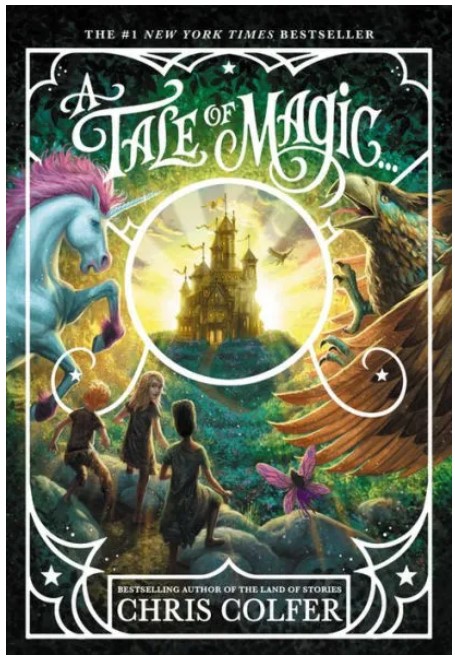
A Tale of Magic

The Immortal Fire

Grace Hopper: Queen of Computer Code

Girls Who Code: Learn to Code and Change the World

Alone

Friends Fur-Ever

Harry Houdini: A Magical Life

The Greedy Gremlin

Hoop Genius: How a Desperate Teacher and a Rowdy Gym Class Invented Basketball


